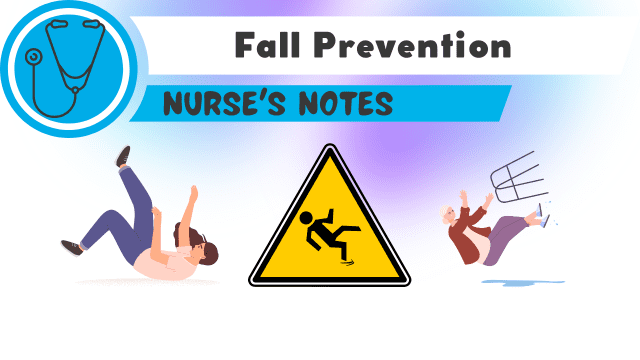Some Known Questions About Dementia Fall Risk.
Some Known Questions About Dementia Fall Risk.
Blog Article
The 5-Minute Rule for Dementia Fall Risk
Table of ContentsDementia Fall Risk Things To Know Before You Get ThisFacts About Dementia Fall Risk Uncovered10 Easy Facts About Dementia Fall Risk DescribedGet This Report on Dementia Fall RiskSome Known Incorrect Statements About Dementia Fall Risk
You could be nervous due to the fact that you have actually had a fall before or since you have actually seen you're starting to feel unstable on your feet. You might have noticed changes to your health, or just seem like you're reducing a little. Whatever the reason, it isn't unusual to end up being mindful and shed confidence, and this can stop you doing things you utilized to do and make you really feel a lot more separated.If you've had a fall or you have actually started to really feel unsteady, tell your doctor even if you feel great otherwise. Your physician can check your equilibrium and the method you walk to see if renovations can be made. They might have the ability to refer you for a drops danger assessment or to the drops prevention service.
This details can be obtained via meetings with the person, their caretakers, and an evaluation of their medical records. Begin by asking the specific regarding their background of drops, including the frequency and scenarios of any current falls. Dementia Fall Risk. Inquire concerning any kind of flexibility problems they might experience, such as unsteady or problem walking
Conduct a complete evaluation of the individual's medications, paying certain interest to those recognized to boost the risk of drops, such as sedatives or drugs that reduced high blood pressure. Establish if they are taking multiple medications or if there have actually been recent adjustments in their drug regimen. Examine the person's home environment for potential threats that can enhance the threat of falls, such as inadequate illumination, loosened carpets, or lack of grab bars in the restroom.
8 Simple Techniques For Dementia Fall Risk
Overview the person through the loss danger analysis form, clarifying each question and taping their reactions precisely. Ensure that the individual comprehends the purpose of the evaluation and feels comfortable offering straightforward answers. Calculate the overall threat rating based upon the responses offered in the assessment type. Identify the person's threat classification (reduced, tool, or high) based upon the complete rating and the existence of automated high-risk status factors.
This strategy may include workout programs to improve toughness and balance, medication adjustments, home alterations, and recommendations to other professionals as needed. Regularly monitor the individual's progression and reassess their threat of falls as required. Change the treatment plan based upon changes in their health and wellness status or home atmosphere. Offer ongoing education and learning and assistance to article source advertise safety and decrease the risk of drops in their daily living activities.
Many researches have revealed that physical therapy can aid to reduce the danger of dropping in adults ages 65 and older. In a new research study (that looked at falls risk in ladies ages 80 and older), scientists determined the economic effect of picking physical therapy to avoid falls, and they discovered that doing so saves $2,144, including all the hidden expenses of your time, pain, missed go to my blog out on life events, and the dollars paid for solutions.
Some Known Factual Statements About Dementia Fall Risk
Evaluating your equilibrium, stamina, and strolling ability. A home security analysis. Based on the analysis results, your physical specialist will certainly design a plan that is customized to your certain needs.
Older adults who have problem walking and talking at the same time go to a greater danger of falling. Dementia Fall Risk. To help enhance your safety throughout day-to-day activities, your physical specialist may make a training program that will certainly challenge you to keep standing and walking while you do another task. Instances include strolling or standing while counting in reverse, having a conversation, or lugging a bag of groceries
Your physiotherapist additionally can identify which tasks you need to prevent to remain safe. Community-based drops prevention programs aid people to: Reduce their concern of dropping. Establish objectives for raising their physical activity. Make their homes much safer. Exercise a lot more to increase their strength and equilibrium. These programs typically are led by volunteer trainers.
The Of Dementia Fall Risk

Measles, or rubeola, is a very infectious, acute viral transmittable condition triggered by the click this measles virus. Some people think about measles as simply a breakout and fever that cleans up in a couple of days; nonetheless, measles can cause severe health and wellness problems, specifically in youngsters younger than 5-years-old. The ideal defense against measles is the measles, mumps, and rubella (MMR) vaccine.
Autumns are a typical reason of injury amongst older adults.
Dementia Fall Risk Can Be Fun For Anyone

She has no history of drops, her gait is steady, and she invalidates with no problems. The previous registered nurse states that she calls for help to the bathroom when she requires to go.
Instances of typical loss interventions/measures consist of: Ensuring a client's important items are within reach. Beyond recognizing how to utilize the Johns Hopkins Loss Danger Assessment Device, it's essential that facilities include its use into a more thorough fall prevention plan.
Report this page